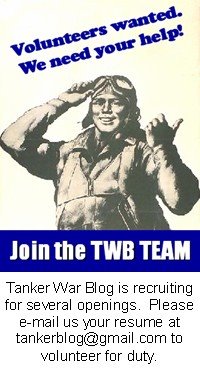
In reality nothing could be further from the truth. In his statement Mr. Stevens never mentions Boeing, and he only mentions EADS and the tanker issue in passing. Below are the paragraphs that KC-30 supporters are selectively interpreting:
In Europe, we see a greater focus on the need for open markets and transparency and the benefits of competition, both from the Commission and from the European Defense Agency. The Commission's recent work, including the draft directive on defense procurement, is a positive step in this regard, as the Commission seeks to achieve greater openness in the European market. But it will be extremely important, as the Commission's directive is reviewed and ultimately implemented by the European Parliament and the Council, that the focus on openness and competitiveness is retained. I believe the notion that European markets should first be "protected in order to be strengthened" is misguided. Protectionism is not now, and has never been, a substitute for competitive strength. With each passing opportunity, those companies who linger under this veil will only grow weaker - until they will be quite literally "protected to death."
Note that Mr. Stevens is talking about European protectionism; which is a continuing and real problem. He is not talking about America or Boeing running the risk of being "protected to death" but instead European firms like EADS and Airbus.
In his next paragraph though he does briefly mention the tanker issue:
A second positive trend is the increasing number of transatlantic programs. The decision by the USAF to purchase Airbus tankers reinforces the openness of U.S. markets and is the most recent example of the growing willingness of the United States to look to global sources of supply for vital equipment. While our company is not involved in the Tanker program, Lockheed Martin is involved in a number of significant transatlantic programs today...
[Three paragraphs later he says] I should also note that the U.S. market remains open to the acquisition of defense companies as evidenced by initiatives previously undertaken by BAES, Rolls Royce, Thales, Smiths, EADS and, most recently, Finmeccanica's offer to acquire DRS Technologies.
Again, Mr. Stevens only mentions EADS and the tanker decision as an example to reinforce just how open the US market is. This US openness would be in stark contrast to the European market. In fact as the Economist recently pointed out, the common jibe thrown across the Atlantic is that ,"America fosters competition; Europe protects competitors."
Mr. Stevens is correct on all his points. At Tanker War Blog we would go even further to say that the Air Force tanker contract decision shows not only the US's openness, but its openness to a dangerously foolish extent.
As we previously posted, the US Government needs encourage free markets though its own openness, but it must also enforce free markets by taking to task countries, and subsidised companies like EADS and Airbus, that do not play by free market rules.
In fact, if Mr. Stevens was asked directly about EADS and Airbus we are sure he would be polite but would not have a lot of good things to say about them. Remember, Lockheed used to be in the commercial aviation business. Here is what a PBS special on the history of commercial aviation says:
As commercial aviation entered an era of ferocious competition, airlines weren't the only ones falling by the wayside. One of Boeing's American competitors,Lockheed, gambled on building their own jumbo jet. The L10-11 was hailed as a magnificent plane, but it turned out to be a financial disaster. Failing to recoup its investment, Lockheed was forced to leave the business in 1983. ... It seemed that Boeing was destined to enjoy a virtual monopoly - not only in America, but in the world. For the Europeans it was a difficult idea to stomach.
In their determination to compete with Boeing, the Europeans came up with a remarkable collaborative agreement to create a new commercial aircraft manufacturer, Airbus Industrie.
Also, as we mentioned in a previous post, EADS has profited greatly by European protectionism of and subsidies to the A400M which competes against Lockheed's C-130J.
So to summarize:
1) Lockheed CEO's speech is 100% correct
2) KC-30 PR team continues to overreach with their "spin"
3) The US government needs to ensure EADS and Airbus play by the rules of the free market before it rewards them with our taxpayer money




 Stumble It!
Stumble It!
No comments:
Post a Comment